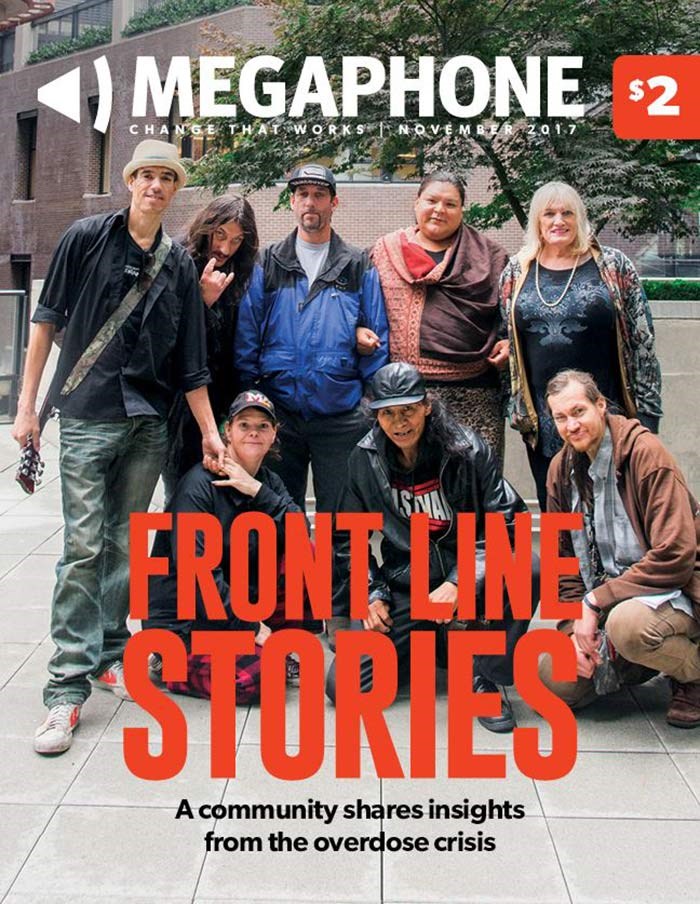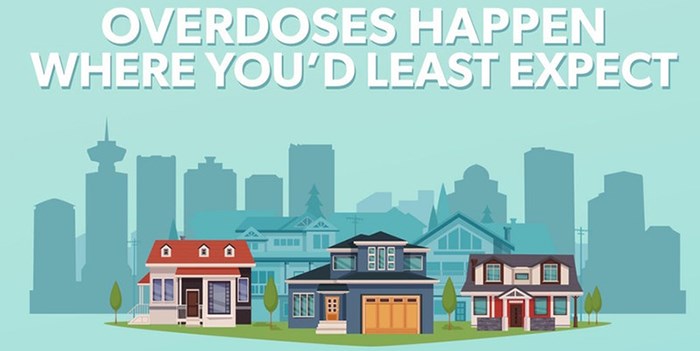Megaphone and the Overdose Prevention Society have partnered to deliver first hand accounts and overdose response training to neighbourhoods throughout Vancouver. The final event of the season, How to Save a Life: Front Line Stories, takes place November 13th at Kits House in Kitsilano.
 Drug users and first responders from the downtown eastside have been visiting neighbourhoods across Vancouver for the last six weeks, sharing their experiences of living through Vancouver's ongoing overdose crisis. At How to Save a Life: Front Line Stories, speakers will share their perspective of the provincial health emergency, and offer training to help ensure individual citizens have the necessary skills and equipment to respond to an overdose efficiently and effectively.
Drug users and first responders from the downtown eastside have been visiting neighbourhoods across Vancouver for the last six weeks, sharing their experiences of living through Vancouver's ongoing overdose crisis. At How to Save a Life: Front Line Stories, speakers will share their perspective of the provincial health emergency, and offer training to help ensure individual citizens have the necessary skills and equipment to respond to an overdose efficiently and effectively.
“My hope for the workshop is to work together to share our experiences and to broaden public awareness,” wrote one participant following the first workshop. “I hope that it helps people understand life in the Downtown Eastside,” another wrote.
Earlier today, it was reported that the number of deadly overdoses in BC has surpassed 1,100 for 2017. 83% of these deaths were fentanyl related.
 The last FREE event of the series runs from 7:00pm to 8:30pm at the Kits Neighbourhood House (2305 W 7th Ave). You can register for the event HERE.
The last FREE event of the series runs from 7:00pm to 8:30pm at the Kits Neighbourhood House (2305 W 7th Ave). You can register for the event HERE.
Presenting storytellers include:
Nicolas Crier is an adoptee of Cree heritage. At 40 years old he has spent approximately half his life surviving in the streets, at least 10 of them in the Downtown Eastside. He’s been publishing as a freelance writer the whole time. It never occurred to him that being a drug user would ever be useful, but a year ago, he joined Spikes on Bikes as a volunteer overdose responder and outreach rider, a job he knows his street experiences earned him in terms of respect and trust within the Downtown Eastside community. He is also sending love to his six-year-old son, Money.
Sekani Dakelth is passionate about trans rights, sex worker rights, and harm reduction. She facilitates a trans supper club at PACE Society, she works front desk at a non-profit, and she sells Megaphone magazine. She is currently seeking wellness.
Dallas Glancy has a passion for helping others. He has lived in the Downtown Eastside for seven years, has overcome addiction issues, and is proud to call the Downtown Eastside community home.
Samona Marsh has lived in the Downtown Eastside for over 25 years. She is on the board of the Vancouver Area Network of Drug Users, as well as various other boards dealing with people in the neighbourhood who use drugs. She also works in an overdose prevention site. Samona carries with her the memory of her father, who she lost on March 5th this year.
Jim McLeod is an active member of the community. He has served on the boards of the Vancouver Area Network of Drug Users and the Drug Users Resource Centre. He describes himself as a functional addict who has been chemically dependent for most of his life.
David Napio describes himself as a Cree Native of North America from Sturgeon Lake, Alberta. He is currently participating in the prescription heroin program at Crosstown Clinic, the first and only one in North America. He is glad to be part of that program. It’s been an important part of his life. Lately, he’s been finding new confidence in dealing with the media.
Antonette Rea is an award-winning poet, playwright, performer, activist, and storyteller who survived the streets of the Downtown Eastside as a transgender sex worker. She has endured severe discrimination, violence, homelessness, and drug addiction.
Spike is a neighbourhood activist who cares deeply about people. He plays poker and likes heavy metal. And he’s proud to say that he will never cut his hair.


